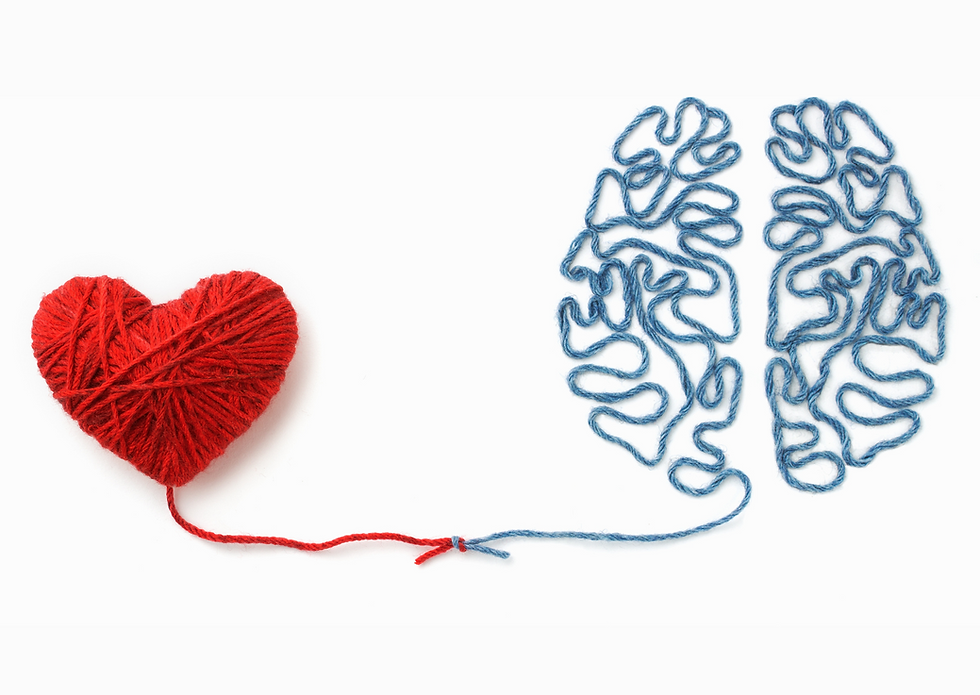Adaptability - being a master of change
- Mary Ely

- Oct 16, 2022
- 3 min read
RocheMartin defines Emotional Intelligence by a set of 10 competencies and this is one in a series of blogs covering each one: Why develop Adaptability, what is it exactly and how can you develop it?
Why develop Adaptability?

…because
To not only survive but thrive in a constantly changing world,
you need to be a master of change.
You need to BE MORE CHAMELEON!
Chameleons. Pretty funky looking animals and brilliant at change!
Instantly and instinctively changing the appearance of their skin when they sense a change in their environment.
Their survival depends on their ability to change.
And so does ours.
As individuals, teams and businesses, if our aim is to not only survive but thrive in a world that is constantly giving us new challenges to deal with and respond to, we need to be able to...
Deal with change
Find ways to ‘keep our heads’, and keep going through changing, challenging and uncertain times. Maintaining our balance, focus and clear thinking when the odds of being able to do that are against us.
Implement change
Proactively make changes as quickly and easily as possible, so that we can rapidly respond to changes in our environment, get more of what we want, less of what we don’t want and be more of who we want to be.
Develop our change-ability
Develop the knowledge, skills and mindsets that allow us to do both of those well and often.
...and Adaptability is the key component for all of those!
Having change-ability means that you'll
Be willing to take on feedback that will help you grow and develop, find new options and different ways of solving issues or getting the results you want.
Embrace the challenge of change rather than finding change scary, painful or uncomfortable.
Feel OK and 'go with the flow' when things change.
Be open to new ideas and experimentation.
Handle differences between people well and be able to deal with potential conflict as a result. Happy to explore and understand other perspectives and willing to consider making adjustments to how you think and behave.
Communicate more effectively as you will be happy to flex your style to make sure you are understood in a way that works for your audience.
"If you dislike change, you're going to dislike irrelevance even more"
Eric Shinseki
So if you don't want to become irrelevant, get stuck where you are, struggle every time something changes, be limited by your own thoughts or risk being misunderstood, then developing change-ability would be a good move and
Change-ability starts with adaptability!
So what else do you need for change-ability?...the other 10 components of emotional intelligence and a few other things, like understanding how people (including you) work and how they react to change.
What is Adaptability exactly?

For me, this mindset sums up adaptability:
We are where we are.
Now what are our options and what are we going to do?
As with all the RocheMartin emotional intelligence competencies, Adaptability can be broken down into 3 components, which help to pinpoint areas of strength and areas for development.
The 3 components of Adaptability are
Acceptance - "we are where we are"
Accepting the situation helps keep our minds calm which helps us with our Self-Control (another emotional intelligence competency).
And that means we're able to stay thinking logically so we can analyse our current situation, consider our options and decide what to do next...opening the door for the next two components which lead to being adaptable.
Open-mindedness - "now what are our options"
We need to be open-minded
to identify what options we may have
to be willing to consider different options of thought, behaviour and action - from sources outside of ourselves!
If we're closed-minded, we're likely to believe that only we have the 'right' answer. And if we have only one of those, or run out of ideas on our own, we'll be stuck. And that feels extremely disempowering, easily leads to feelings of helplessness, won't help us get the results we want and is generally pretty horrible!
Flexibility - "and what are we going to do?"
Flexibility is about
being able to give some or all of the options identified a go.
being willing to experiment with different ideas, ways of thinking and behaving.
How can you develop Adaptability?
Coaching is by far the most efficient, effective, engaging, empowering and enjoyable way to build any of the Emotional Intelligence competencies.
Helping you to develop, refine and embed your own personalised strategies for each competency.
And this blog contains some ideas for you to experiment with on your own that have worked for me and my clients.

If you’re interested in understanding your level of emotional intelligence using one of the RocheMartin assessments or would like to explore coaching for developing components of it like Adaptability, you can book a free call here.
And if you'd like to try out my monthly emails that provide a roundup of my blogs as well as other insights, you can sign up here.





Comments